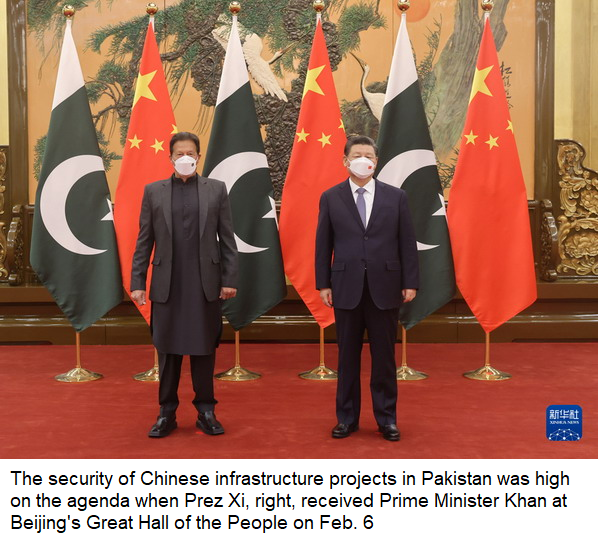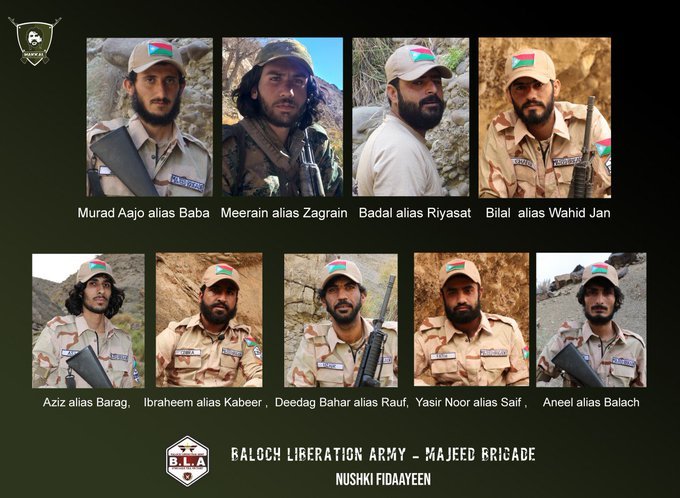
Balochistan is Pakistan’s Achilles Heel
The continuing spate of deadly attacks in Balochistan lays bare the state’s failure to pre-empt subversive forces, which seem to be operating with renewed vigour. With the Pakistan Army having suffered both losses and their reputation, it is becoming clear that Balochistan, Pakistan’s largest province, is the Achilles heel of Pakistan.

There are two strands of violence currently witnessed in the province. There is the ongoing violence unleashed by the Pakistani state and the nationalist response from the Baloch liberation fighters. The more recent phenomenon is the Tehreek-i-Taliban Pakistan (TTP) violence that has taken the toll of several lives. Most recently, a remote- controlled bomb exploded in Quetta, which killed 3 persons and injured 25 others.
It is worth mentioning that this was the second attack in Quetta within a week targeting the city police force.
The first, a gun attack on policemen taking a lunch break, was claimed by the banned TTP.
The modus operandi of both incidents suggests that the attackers had knowledge of police movements and response strategies and targeted them when they were at their most vulnerable. Front-line security personnel cannot be allowed to become sitting ducks for anti-state elements.

TTP REVIVAL - BLA UPSURGE
The TTP attacks in Balochistan are symptomatic of the general revival of the TTP across the country and require resolute state action. However, Pakistan’s Prime Minister Imran Khan faces a far more serious challenge when it comes to the attacks carried out by the Baloch Liberation Army (BLA) in February 2022, as this directly impacts Pakistan’s relations with China.
The Pakistan army lost several of its soldiers in three different major terrorist attacks at the start of the year.
First, on 25 January, terrorists attacked in Kech, Balochistan, near the western border with Iran, roughly 600 km south of Quetta. In this attack over ten Pakistani military personnel were killed.
Just over a week later, on 2 February, another terrorist attack occurred in Noshki and Panjgur districts. Although the Noshki attack was repulsed, the standoff in Panjgur lasted for 70 hours and resulted in the death of seven military personnel, including a senior officer. A VBIED (Vehicle-Borne Improvised Explosive Device) was used to carry out the initial part of BLA operations at both Panjgur and Noshki camps.
One of the first noticeable points about these attacks is its coincidence with PM Imran Khan’s China visit for the opening of the Beijing Winter Olympic Games. The attacks, on security posts in Balochistan in early February, were targeted at Pak Army/Frontier Corps personnel, but the main aim was to send a signal to China. The BLA claimed it had killed 195 paramilitary personnel.
The Pak government admitted to losing only nine. There were reports that 13 of the militants were also killed.
The ferocity of the attacks led PM Khan to visit Nushki, the district where the fighting had taken place. On the ground, he said, “My government vows to give a befitting response to the terrorists who are trying in vain to hamper the pace of progress, especially in Balochistan.”
Khan linked the attacks to the situation in Afghanistan and stated, “No other army has faced such unprecedented challenges due to acts of terrorism in the wake of the war in Afghanistan”.
Army Chief General Bajwa also visited Noshki to shore up morale amongst military personnel serving in the area.
BLA TARGET - CHINA
One indication that the BLA aimed to target China by these attacks is revealed in the statement released soon after the attacks. Like in previous incidents involving the nationalist Baloch fighters, the rebels warned China to get out of Balochistan. A BLA statement to the press read: “We also once again warn the Chinese to refrain from aiding Pakistan in looting Baloch resources and occupying our motherland, or else their interests will become our targets.”

While officially, Pakistan would not like the attacks to be linked to PM Khan’s China visit, Pakistani media quoted security officials having said that the BLA attacks were aimed to ‘sabotage’ PM Khan’s talks in China.
The reality is that China is not too keen on pursuing further investments in China Pakistan Economic Corridor (CPEC) and prefers speeding up of existing projects.
Baloch rebels have consistently targeted CPEC projects in Balochistan and Gwadar, in particular.
The sudden increase in the severity and number of attacks has concerned Pakistan officials and observers alike.
This is because Pakistan hosts the CPEC, flagship of the Chinese Belt and Road Initiative (BRI).
China has often warned Pakistan that security of Chinese personnel and infrastructure related to the CPEC is an important responsibility of the Pakistani Army. That is why they have long sought the Army to take direct control over the CPEC. Pakistan had earlier raised a Special Security Division to tackle security of CPEC and its assets.
INSURGENCY - DOMESTIC PROBLEM
Recent intensification of violence in Balochistan disproves claims made by Pakistan that control of Afghanistan by the Afghan Taliban would bring an end to insurgency in Balochistan.
Insurgency in Balochistan is a domestic problem caused by decades of marginalization of the Baloch people. The Chinese angle comes in because they do not provide any employment to the locals in the CPEC framework. Thus, alienation of the local population has only increased.
Reports indicate that the US withdrawal from Afghanistan, leaving behind a huge cache of arms has provided the Baloch insurgency a new source of arms and ammunition.
IRAN ANGLE
Some reports indicate that Iran is involved with the Baloch rebels and is using Baloch separatists to sabotage Gwadar Port so that China will use its Chabahar Port instead.
This is a far-fetched suggestion as Iran would not like to get involved directly.
GWADAR CENTRIC CHINA
What seems fairly clear is that any instability in Balochistan, makes foreign investment of any kind risky and, the Chinese realise this. However, given their aim of making Pakistan a client state and their own need for Gwadar Port as a naval base, China is ensuring that things progress.
That Pakistan’s largest province remains backward and impoverished is the fundamental point.
Related to that is that Baloch nationalists realise that with the passage of time, Pakistan is giving China too much freedom to operate on its soil. This in the long run will only harm Balochistan.
This is why we are seeing a renewed wave of violence in the province. (POREG)
-by Magad Lipan from Boston*
*The writer is a Boston based management consultant and blogger, who frequents Asia and the Far East
-
CHINA DIGEST
-
 ChinaChina Digest
China set world record with new super-speed ‘electromagnetic lever’ test, state media says
ChinaChina Digest
China set world record with new super-speed ‘electromagnetic lever’ test, state media says
-
 ChinaChina Digest
Home rents drop by 20 per cent in Shanghai as expats and wealthy mainlanders leave the city due to……
ChinaChina Digest
Home rents drop by 20 per cent in Shanghai as expats and wealthy mainlanders leave the city due to……
-
 ChinaChina Digest
Hong Kong talent scheme set to benefit India workers, but Singapore and Dubai offer competition
ChinaChina Digest
Hong Kong talent scheme set to benefit India workers, but Singapore and Dubai offer competition
-
 ChinaChina Digest
China’s ‘sharp, uncharacteristic’ economic slowdown to drag on Asian growth, IMF says
ChinaChina Digest
China’s ‘sharp, uncharacteristic’ economic slowdown to drag on Asian growth, IMF says
-
-
SOUTH ASIAN DIGEST
-
 South Asian Digest
Rice, wheat prices drop globally, rise in Bangladesh
South Asian Digest
Rice, wheat prices drop globally, rise in Bangladesh
-
 South Asian Digest
Nepali Congress mum on secularism, vows to strengthen federalism
South Asian Digest
Nepali Congress mum on secularism, vows to strengthen federalism
-
 South Asian Digest
Pakistan: PM claims rejected Imran’s proposal on COAS appointment
South Asian Digest
Pakistan: PM claims rejected Imran’s proposal on COAS appointment
-
 South Asian Digest
Guantanamo’s oldest inmate returns to Pakistan, without trial
South Asian Digest
Guantanamo’s oldest inmate returns to Pakistan, without trial
-

Comments